Day 1
An Introduction from Dr. Marc Lipsitch
 Marc Lipsitch is Professor of Epidemiology and founding Director of the Center for Communicable Disease Dynamics at Harvard TH Chan School of Public Health. He is on loan to CDC where he is Director of Science for the Center for Forecasting and Outbreak Analytics. His research focuses broadly on the impact of medical and public health interventions on pathogen populations and the consequences of these changes for human health. In particular his work has focused on pandemic preparedness and response, mathematical modeling of prevention trials, genomic epidemiology, and the sources of diversity in pathogen populations. Pathogens of specific interest include antimicrobial-resistant pathogens, Streptococcus pneumoniae, influenza, and SARS-CoV-2. On SARS-CoV-2, his work with CCDD and more recently CDC has included modeling of the epidemic trajectory, estimates of introduced cases by travelers, studies of clinical outcomes and severity, epidemiological and modeling methodology, vaccine allocation modeling, vaccine effectiveness studies, research ethics (related to human challenge trials), and other topics. He received a BA in philosophy from Yale and a DPhil in zoology from the University of Oxford, followed by postdoctoral work in biology at Emory University and a period as a visiting scientist at CDC, before joining Harvard Chan.
Marc Lipsitch is Professor of Epidemiology and founding Director of the Center for Communicable Disease Dynamics at Harvard TH Chan School of Public Health. He is on loan to CDC where he is Director of Science for the Center for Forecasting and Outbreak Analytics. His research focuses broadly on the impact of medical and public health interventions on pathogen populations and the consequences of these changes for human health. In particular his work has focused on pandemic preparedness and response, mathematical modeling of prevention trials, genomic epidemiology, and the sources of diversity in pathogen populations. Pathogens of specific interest include antimicrobial-resistant pathogens, Streptococcus pneumoniae, influenza, and SARS-CoV-2. On SARS-CoV-2, his work with CCDD and more recently CDC has included modeling of the epidemic trajectory, estimates of introduced cases by travelers, studies of clinical outcomes and severity, epidemiological and modeling methodology, vaccine allocation modeling, vaccine effectiveness studies, research ethics (related to human challenge trials), and other topics. He received a BA in philosophy from Yale and a DPhil in zoology from the University of Oxford, followed by postdoctoral work in biology at Emory University and a period as a visiting scientist at CDC, before joining Harvard Chan.
Opening Session: Decision Making – Challenges and Realities

Governor Charlie Baker is the 72nd Governor of the Commonwealth of Massachusetts. He was sworn in for a first term in January 2015 and a second term in January 2019. Throughout his tenure, Governor Baker has focused on moving Massachusetts forward through bipartisan, results-driven leadership. Responding to the historic challenges related to the COVID-19 pandemic, Governor Baker worked in partnership with the Commonwealth’s world-class health care system and leading medical experts to protect the health and safety of the Commonwealth’s residents. Massachusetts has led the nation in COVID-19 vaccinations, protecting communities and families and ensuring the Commonwealth’s economy continues to grow. Prior to his election, Governor Baker was a highly successful leader of complex business and government organizations, serving as a cabinet secretary to both Governor William Weld and Paul Cellucci, and leading Harvard Pilgrim Health Care, as CEO, from the brink of bankruptcy to one of the nation’s highest ranked health care providers. Raised in Needham, Governor Baker and his wife Lauren reside in Swampscott, and are the proud parents of their three children, Charlie, AJ, and Caroline.
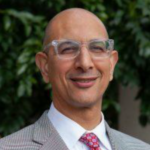 Dr. Mark Ghaly was appointed Secretary of the California Health and Human Services Agency in early 2019 by Governor Gavin Newsom. In serving California, Dr. Ghaly has the privilege of working with partners across sectors and disciplines to improve the lives and life chances of ALL Californians. This has been especially true during our response to the COVID-19 pandemic. Dr. Ghaly is a primary care pediatrician who continues to use his clinical and community experiences, working in California’s health care safety net system, to inform a whole person, whole community, approach to integrating services so they are equity-anchored and person-centered for ALL, but especially the most vulnerable Californians. Dr. Ghaly holds the deep belief that together our collective efforts can not only serve Californians well today but set us on a path where ALL Californians have a brighter and healthier future. Nothing he does can be done well without the support of his wife, Dr. Christina Ghaly, and his 4 young children.
Dr. Mark Ghaly was appointed Secretary of the California Health and Human Services Agency in early 2019 by Governor Gavin Newsom. In serving California, Dr. Ghaly has the privilege of working with partners across sectors and disciplines to improve the lives and life chances of ALL Californians. This has been especially true during our response to the COVID-19 pandemic. Dr. Ghaly is a primary care pediatrician who continues to use his clinical and community experiences, working in California’s health care safety net system, to inform a whole person, whole community, approach to integrating services so they are equity-anchored and person-centered for ALL, but especially the most vulnerable Californians. Dr. Ghaly holds the deep belief that together our collective efforts can not only serve Californians well today but set us on a path where ALL Californians have a brighter and healthier future. Nothing he does can be done well without the support of his wife, Dr. Christina Ghaly, and his 4 young children.
 James E.K. Hildreth, Ph.D., M.D. is the 12th president and chief executive officer of Meharry Medical College, the nation’s largest private, independent historically black academic health sciences center. Dr. Hildreth obtained a B.A. in chemistry from Harvard University and was selected as the first African-American Rhodes Scholar from Arkansas. He obtained a Ph.D. in immunology from Oxford University where his studies focused on the biology of virus-specific cytotoxic T cells. He obtained an M.D. from Johns Hopkins University School of Medicine. Dr. Hildreth’s research in immunology and virology, with a focus on HIV, has resulted in more than 130 publications in top journals and 11 patents. He has received numerous NIH grants to support his research including a prestigious NIH Director’s Pioneer Award. A technology developed by Dr. Hildreth was licensed by Genentech as the basis for the FDA-approved drug Raptiva. Dr. Hildreth has been appointed to two FDA advisory committees: Vaccines and Related Biological Products Advisory Committee (VRBPAC) and Antimicrobial Drugs Advisory Committee (AMDAC). In February of 2021, he was appointed by President Biden to the COVID-19 Health Equity Task Force.
James E.K. Hildreth, Ph.D., M.D. is the 12th president and chief executive officer of Meharry Medical College, the nation’s largest private, independent historically black academic health sciences center. Dr. Hildreth obtained a B.A. in chemistry from Harvard University and was selected as the first African-American Rhodes Scholar from Arkansas. He obtained a Ph.D. in immunology from Oxford University where his studies focused on the biology of virus-specific cytotoxic T cells. He obtained an M.D. from Johns Hopkins University School of Medicine. Dr. Hildreth’s research in immunology and virology, with a focus on HIV, has resulted in more than 130 publications in top journals and 11 patents. He has received numerous NIH grants to support his research including a prestigious NIH Director’s Pioneer Award. A technology developed by Dr. Hildreth was licensed by Genentech as the basis for the FDA-approved drug Raptiva. Dr. Hildreth has been appointed to two FDA advisory committees: Vaccines and Related Biological Products Advisory Committee (VRBPAC) and Antimicrobial Drugs Advisory Committee (AMDAC). In February of 2021, he was appointed by President Biden to the COVID-19 Health Equity Task Force.
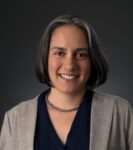 Dr. Celia Quinn is the Deputy Commissioner of the Division of Disease Control at the New York City (NYC) Department of Health and Mental Hygiene (Health Department). In this role, Dr. Quinn leads NYC’s management of and response to a range of infectious diseases, including general communicable diseases, vaccine-preventable diseases, sexually transmitted infections, HIV, and tuberculosis. She also oversees the public health laboratory and DOHMH’s clinical services. Dr. Quinn also serves as the Incident Commander of the Health Department’s COVID-19 response. She is an alumna of the Mount Sinai School of Medicine, where she also completed a Master of Public Health. After completing her pediatric training in the Residency Program for Social Medicine at Montefiore Medical Center, Dr. Quinn joined the Centers for Disease Control and Prevention as an Epidemic Intelligence Service Officer. She is currently a CDC field assignee to the NYC Health Department, and is a Commander in the US Public Health Service.
Dr. Celia Quinn is the Deputy Commissioner of the Division of Disease Control at the New York City (NYC) Department of Health and Mental Hygiene (Health Department). In this role, Dr. Quinn leads NYC’s management of and response to a range of infectious diseases, including general communicable diseases, vaccine-preventable diseases, sexually transmitted infections, HIV, and tuberculosis. She also oversees the public health laboratory and DOHMH’s clinical services. Dr. Quinn also serves as the Incident Commander of the Health Department’s COVID-19 response. She is an alumna of the Mount Sinai School of Medicine, where she also completed a Master of Public Health. After completing her pediatric training in the Residency Program for Social Medicine at Montefiore Medical Center, Dr. Quinn joined the Centers for Disease Control and Prevention as an Epidemic Intelligence Service Officer. She is currently a CDC field assignee to the NYC Health Department, and is a Commander in the US Public Health Service.
 Dr. Anne Zink grew up in Colorado and moved through her training from College in Philadelphia to Medical School at Stanford and then Residency at University at Utah. As a mountaineering guide she had fallen in love with Alaska and after residency in Emergency Medicine became lucky enough to call Alaska home. Not only does she love people and the place, but also the medicine where the communities can engage provides, patients, and policies to make people healthier.
Dr. Anne Zink grew up in Colorado and moved through her training from College in Philadelphia to Medical School at Stanford and then Residency at University at Utah. As a mountaineering guide she had fallen in love with Alaska and after residency in Emergency Medicine became lucky enough to call Alaska home. Not only does she love people and the place, but also the medicine where the communities can engage provides, patients, and policies to make people healthier.
Dr. Zink had the honor of becoming the State of Alaska Chief Medical Officer in July 2019. She and her team lead Alaska from the first repatriation flight to today through the COVID pandemic. She is looking forward to her upcoming term as the President Elect for ASTHO, the Association of State and Territorial Health Officers. She has special interest using informatics and information to bring together public health and health care to improve the health of the people we all serve.
Session 1: Detect – Identifying Novel Pathogens or Types
 Duncan MacCannell is the chief science officer for the CDC’s Office of Advanced Molecular Detection (OAMD), where he helps to implement and support pathogen genomics, bioinformatics, high-performance computing and innovative laboratory technologies across the agency’s four infectious disease centers, working closely with a range of state and local public health departments, global public health institutes and other partner organizations.
Duncan MacCannell is the chief science officer for the CDC’s Office of Advanced Molecular Detection (OAMD), where he helps to implement and support pathogen genomics, bioinformatics, high-performance computing and innovative laboratory technologies across the agency’s four infectious disease centers, working closely with a range of state and local public health departments, global public health institutes and other partner organizations.
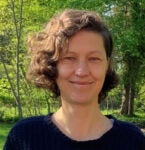 Associate Professor Jessica Metcalf is a demographer with broad interests in evolutionary ecology, infectious disease dynamics and public policy, ranging from pathogen emergence to design of vaccination programs for endemic infections.
Associate Professor Jessica Metcalf is a demographer with broad interests in evolutionary ecology, infectious disease dynamics and public policy, ranging from pathogen emergence to design of vaccination programs for endemic infections.
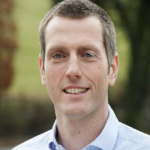 Professor Steven Riley joined UKHSA as Director General for Data, Analytics and Surveillance and a member of the UKHSA Executive Committee on 1 October 2021.
Professor Steven Riley joined UKHSA as Director General for Data, Analytics and Surveillance and a member of the UKHSA Executive Committee on 1 October 2021.
Prior to joining the UKHSA, Professor Riley was Professor of Infectious Disease Dynamics at the Imperial College, London. He worked as part of the team that helped model the scale and progress of the pandemic and informed Government decisions on necessary measures to control the spread and was also part of the REACT programme. He brings with him expert knowledge and understanding of how data can be used to shape and inform our response to infectious diseases.
The Data, Analytics and Surveillance (DAS) Group is focusing on putting the full power of health and non-health data in the hands of those who need it and enabling the health protection ecosystem through the provision of world-class analytics capability to inform health protection activities, decision-making, action and outcomes.
Session 2: Monitor – Examining Burden of Disease
 John Brownstein, PhD is Professor of Biomedical Informatics at Harvard Medical School and is the Chief Innovation Officer of Boston Children’s Hospital. He directs the Computational Epidemiology Lab and the Innovation and Digital Health Accelerator both at Boston Children’s. He was trained as an epidemiologist at Yale University. Dr. Brownstein is also co-founder of digital health companies Epidemico and Circulation and an ABC News Medical Contributor.
John Brownstein, PhD is Professor of Biomedical Informatics at Harvard Medical School and is the Chief Innovation Officer of Boston Children’s Hospital. He directs the Computational Epidemiology Lab and the Innovation and Digital Health Accelerator both at Boston Children’s. He was trained as an epidemiologist at Yale University. Dr. Brownstein is also co-founder of digital health companies Epidemico and Circulation and an ABC News Medical Contributor.
 Roni Rosenfeld (B.Sc., mathematics and physics, 1985, Tel-Aviv University; M.Sc. 1991, Ph.D. 1994, computer science, Carnegie Mellon University) is head of the Machine Learning Department and professor of machine learning, language technologies, computer science and computational biology, in the School of Computer Science at Carnegie Mellon University, Pittsburgh, Pennsylvania. He also holds a courtesy appointment at the Heinz School of Public Policy at Carnegie Mellon, and an adjunct appointment at the University of Pittsburgh School of Medicine. Rosenfeld has been teaching machine learning and statistical language modeling since 1997. He has taught thousands of undergraduate and graduate students, has been a mentor to four post-doctoral students and an advisor to about a dozen Ph.D. students and a score of Masters and undergraduate students. Professor Rosenfeld’s current interests include tracking and forecasting epidemics, using speech and language technologies to aid international development, using machine learning for social good, and advancing data numeracy for all. He has also performed research in statistical language modeling, machine learning, speech recognition and viral evolution. He has published well over 100 scientific articles in academic journals and conferences. Rosenfeld is a recipient of the Allen Newell Medal for Research Excellence and of the Spira Teaching Excellence Award.
Roni Rosenfeld (B.Sc., mathematics and physics, 1985, Tel-Aviv University; M.Sc. 1991, Ph.D. 1994, computer science, Carnegie Mellon University) is head of the Machine Learning Department and professor of machine learning, language technologies, computer science and computational biology, in the School of Computer Science at Carnegie Mellon University, Pittsburgh, Pennsylvania. He also holds a courtesy appointment at the Heinz School of Public Policy at Carnegie Mellon, and an adjunct appointment at the University of Pittsburgh School of Medicine. Rosenfeld has been teaching machine learning and statistical language modeling since 1997. He has taught thousands of undergraduate and graduate students, has been a mentor to four post-doctoral students and an advisor to about a dozen Ph.D. students and a score of Masters and undergraduate students. Professor Rosenfeld’s current interests include tracking and forecasting epidemics, using speech and language technologies to aid international development, using machine learning for social good, and advancing data numeracy for all. He has also performed research in statistical language modeling, machine learning, speech recognition and viral evolution. He has published well over 100 scientific articles in academic journals and conferences. Rosenfeld is a recipient of the Allen Newell Medal for Research Excellence and of the Spira Teaching Excellence Award.
 Dr. Ana Bento is the Scientific Director of Pandemic Prevention Institute at The Rockefeller Foundation. In this capacity, she is leading a team of researchers to shape, develop and coordinate integrative research into how data-driven modeling can end current and prevent future pandemics. Outside of The Rockefeller Foundation, she is currently an Assistant Professor at Indiana University – Bloomington in Epidemiology & Biostatistics, School of Public Health and in EEB Biology. She is a disease ecologist with a focus on ecology and evolution of infectious diseases. She earned her Ph.D. in Ecology & Evolution at Silwood Park, Imperial College London. After a MRC postdoctoral fellowship (2013-2015) at Imperial College, Infectious Diseases Epidemiology Department, she accepted a postdoctoral position at the Odum School of Ecology, UGA, on the ecology & evolution of vaccine preventable childhood diseases (2015-2019).
Dr. Ana Bento is the Scientific Director of Pandemic Prevention Institute at The Rockefeller Foundation. In this capacity, she is leading a team of researchers to shape, develop and coordinate integrative research into how data-driven modeling can end current and prevent future pandemics. Outside of The Rockefeller Foundation, she is currently an Assistant Professor at Indiana University – Bloomington in Epidemiology & Biostatistics, School of Public Health and in EEB Biology. She is a disease ecologist with a focus on ecology and evolution of infectious diseases. She earned her Ph.D. in Ecology & Evolution at Silwood Park, Imperial College London. After a MRC postdoctoral fellowship (2013-2015) at Imperial College, Infectious Diseases Epidemiology Department, she accepted a postdoctoral position at the Odum School of Ecology, UGA, on the ecology & evolution of vaccine preventable childhood diseases (2015-2019).
 Dr. Paul Elliott is clinical professor of epidemiology and public health medicine at the School of Public Health, Imperial College London. He is Director of the Medical Research Council Centre for Environment and Health and the UK Small Area Health Statistics Unit (SAHSU). He is Director of the REal time Assessment of Community Transmission (REACT) Study, a national programme of at-home testing to track the spread of SARS-CoV-2 (including asymptomatic infections) across England. REACT has provided “real world” data from over 2 million people based on random samples of the population, 1 May 2020 to 31 March 2022. Dr Elliott is a member of the international scientific advisory board of the UK Biobank, a resource of health and genetic data and biological samples with linkage to health data records. He was appointed Commander of the Order of the British Empire (CBE) in 2021 for services to scientific research in public health.
Dr. Paul Elliott is clinical professor of epidemiology and public health medicine at the School of Public Health, Imperial College London. He is Director of the Medical Research Council Centre for Environment and Health and the UK Small Area Health Statistics Unit (SAHSU). He is Director of the REal time Assessment of Community Transmission (REACT) Study, a national programme of at-home testing to track the spread of SARS-CoV-2 (including asymptomatic infections) across England. REACT has provided “real world” data from over 2 million people based on random samples of the population, 1 May 2020 to 31 March 2022. Dr Elliott is a member of the international scientific advisory board of the UK Biobank, a resource of health and genetic data and biological samples with linkage to health data records. He was appointed Commander of the Order of the British Empire (CBE) in 2021 for services to scientific research in public health.
Session 3: Understand – Intelligence into Characteristics of Infections and their Consequences
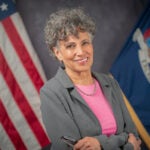 Mary T. Bassett, MD, MPH., was appointed Commissioner of Health on December 1, 2021. She previously served as Director of the François-Xavier Bagnoud (FXB) Center for Health and Human Rights at Harvard University and FXB Professor of the Practice of Health and Human Rights in the department of Social and Behavioral Sciences at the Harvard T.H. Chan School of Public Health. Prior to that, she served as Commissioner of the New York City Department of Health and Mental Hygiene, Director for the Doris Duke Charitable Foundation’s African Health Initiative and Child Well-Being Prevention Program; and as Deputy Commissioner of Health Promotion and Disease Prevention at the New York City Department of Health and Mental Hygiene. Early in her career, Dr. Bassett served on the medical faculty at the University of Zimbabwe and went on to serve as Associate Director of Health Equity at the Rockefeller Foundation’s Southern Africa Office. After returning to the United States, she served on the faculty of Columbia University, including as Associate Professor of Clinical Epidemiology in the Mailman School of Public Health. Dr. Bassett received a B.A. in History and Science from Harvard University, an M.D. from Columbia University’s College of Physicians and Surgeons, and an M.P.H. from the University of Washington
Mary T. Bassett, MD, MPH., was appointed Commissioner of Health on December 1, 2021. She previously served as Director of the François-Xavier Bagnoud (FXB) Center for Health and Human Rights at Harvard University and FXB Professor of the Practice of Health and Human Rights in the department of Social and Behavioral Sciences at the Harvard T.H. Chan School of Public Health. Prior to that, she served as Commissioner of the New York City Department of Health and Mental Hygiene, Director for the Doris Duke Charitable Foundation’s African Health Initiative and Child Well-Being Prevention Program; and as Deputy Commissioner of Health Promotion and Disease Prevention at the New York City Department of Health and Mental Hygiene. Early in her career, Dr. Bassett served on the medical faculty at the University of Zimbabwe and went on to serve as Associate Director of Health Equity at the Rockefeller Foundation’s Southern Africa Office. After returning to the United States, she served on the faculty of Columbia University, including as Associate Professor of Clinical Epidemiology in the Mailman School of Public Health. Dr. Bassett received a B.A. in History and Science from Harvard University, an M.D. from Columbia University’s College of Physicians and Surgeons, and an M.P.H. from the University of Washington
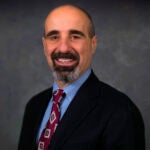 Andrew Bindman, MD, is executive vice president and chief medical officer for Kaiser Permanente. He is responsible for driving superior quality and equitable health outcomes through the data analytics and the integration of quality innovation, care delivery, and research. He is also Kaiser Permanente’s executive sponsor for the Kaiser Permanente Bernard J. Tyson School of Medicine.
Andrew Bindman, MD, is executive vice president and chief medical officer for Kaiser Permanente. He is responsible for driving superior quality and equitable health outcomes through the data analytics and the integration of quality innovation, care delivery, and research. He is also Kaiser Permanente’s executive sponsor for the Kaiser Permanente Bernard J. Tyson School of Medicine.
Prior to coming to Kaiser Permanente, Dr. Bindman spent more than 30 years as a faculty member at the University of California, San Francisco (UCSF) and served as the Director of the Agency for Healthcare Research and Quality (AHRQ). Dr. Bindman is a graduate of Harvard College and the Mount Sinai School of Medicine. He was elected to the National Academy of Medicine in 2015, where he currently serves on the board for health care services and chairs the workshops on diagnostic excellence.
 David Eyre is an infectious diseases and microbiology clinician at Oxford University Hospitals and an Associate Professor at the University of Oxford’s Big Data Institute. His research focuses on better understanding the epidemiology and transmission of infectious diseases through a combination of pathogen sequencing and use of large-scale healthcare data. He also has an interest in improving the diagnosis and management of infection using routinely collected healthcare data. His previous work has focused on a range of pathogens including C. difficile, Candida auris and N. gonorrhoeae. During the COVID pandemic he has used national survey and contact tracing data as well as healthcare worker data to study transmission, real-world vaccine effectiveness and antibody responses to infection and vaccination. He has also generated evidence underlying the widespread use of SARS-CoV-2 antigen lateral flow tests in the UK.
David Eyre is an infectious diseases and microbiology clinician at Oxford University Hospitals and an Associate Professor at the University of Oxford’s Big Data Institute. His research focuses on better understanding the epidemiology and transmission of infectious diseases through a combination of pathogen sequencing and use of large-scale healthcare data. He also has an interest in improving the diagnosis and management of infection using routinely collected healthcare data. His previous work has focused on a range of pathogens including C. difficile, Candida auris and N. gonorrhoeae. During the COVID pandemic he has used national survey and contact tracing data as well as healthcare worker data to study transmission, real-world vaccine effectiveness and antibody responses to infection and vaccination. He has also generated evidence underlying the widespread use of SARS-CoV-2 antigen lateral flow tests in the UK.
 Dr. Kate Grabowski is an Associate Professor in the Departments of Pathology and Epidemiology at Johns Hopkins University. Her research focuses on the epidemiology, prevention, and control of HIV and sexually transmitted infections in sub-Saharan Africa. Over the last decade, she has made major contributions to understanding the role of mobility and migration on HIV transmission dynamics, impact of HIV prevention and treatment programs on HIV outcomes, and HIV molecular epidemiology. Most of Kate’s research is nested within the Rakai Community Cohort Study, one of the largest and oldest population-based HIV cohorts worldwide. Kate also serves on the executive committee of the PANEA-HIV consortium and is an investigator with the HIV Prevention Trials Network. Kate has broader academic interests in preprint peer review, the ethics of open data science, and the use of pathogen genomics for public health in low-income settings.
Dr. Kate Grabowski is an Associate Professor in the Departments of Pathology and Epidemiology at Johns Hopkins University. Her research focuses on the epidemiology, prevention, and control of HIV and sexually transmitted infections in sub-Saharan Africa. Over the last decade, she has made major contributions to understanding the role of mobility and migration on HIV transmission dynamics, impact of HIV prevention and treatment programs on HIV outcomes, and HIV molecular epidemiology. Most of Kate’s research is nested within the Rakai Community Cohort Study, one of the largest and oldest population-based HIV cohorts worldwide. Kate also serves on the executive committee of the PANEA-HIV consortium and is an investigator with the HIV Prevention Trials Network. Kate has broader academic interests in preprint peer review, the ethics of open data science, and the use of pathogen genomics for public health in low-income settings.
 Miguel Hernán conducts research to learn what works to improve human health. He is the Director of the CAUSALab at the Harvard T.H. Chan School of Public Health, where he and his collaborators design analyses of healthcare databases, epidemiologic studies, and randomized trials. As Kolokotrones Professor of Biostatistics and Epidemiology, he teaches causal inference methodology at the Harvard Chan School and clinical epidemiology at the Harvard-MIT Division of Health Sciences and Technology. His edX course “Causal Diagrams” and his book “Causal Inference: What If”, co-authored with James Robins, are freely available online and widely used for the training of researchers.
Miguel Hernán conducts research to learn what works to improve human health. He is the Director of the CAUSALab at the Harvard T.H. Chan School of Public Health, where he and his collaborators design analyses of healthcare databases, epidemiologic studies, and randomized trials. As Kolokotrones Professor of Biostatistics and Epidemiology, he teaches causal inference methodology at the Harvard Chan School and clinical epidemiology at the Harvard-MIT Division of Health Sciences and Technology. His edX course “Causal Diagrams” and his book “Causal Inference: What If”, co-authored with James Robins, are freely available online and widely used for the training of researchers.
Day 2
Session 4: Predict/Project – Modeling Current and Future Scenarios
 Dr. Jason Asher has been supporting the Health and Human Services (HHS) Office of the Assistant Secretary for Preparedness and Response (ASPR) since 2011. He has led a team that is responsible for modeling threats that span the range of chemical, biological, radiological, and nuclear hazards as well as emerging infectious diseases and pandemic influenza. His work has included cost-benefit analyses of actual and hypothetical medical countermeasures, clinical trial planning and simulation, and the design of software tools and architectures for modeling, analysis, and visualization. He has also developed innovative techniques and tools for both forecasting and scenario-based projection of the spread of infectious diseases and has applied them in responses such as the 2014-2015 West African Ebola outbreak, the Zika outbreak in the Americas, and the ongoing SARS-CoV-2 pandemic.
Dr. Jason Asher has been supporting the Health and Human Services (HHS) Office of the Assistant Secretary for Preparedness and Response (ASPR) since 2011. He has led a team that is responsible for modeling threats that span the range of chemical, biological, radiological, and nuclear hazards as well as emerging infectious diseases and pandemic influenza. His work has included cost-benefit analyses of actual and hypothetical medical countermeasures, clinical trial planning and simulation, and the design of software tools and architectures for modeling, analysis, and visualization. He has also developed innovative techniques and tools for both forecasting and scenario-based projection of the spread of infectious diseases and has applied them in responses such as the 2014-2015 West African Ebola outbreak, the Zika outbreak in the Americas, and the ongoing SARS-CoV-2 pandemic.
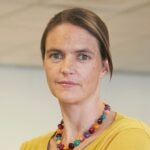 Dr. Caroline Buckee is a Professor of Epidemiology and the Associate Director of the Centre for Communicable Disease Dynamics at Harvard T.H. Chan School of Public Health. She serves as an Associate Faculty member at the Wellcome Sanger Institute in Cambridge, UK, and is a co-founder of Crisis Ready (crisisready.io), a platform to build a data-driven approach to crisis response. Her work is focused on understanding the mechanisms driving the spread of infectious diseases that impact the most vulnerable populations worldwide, particularly malaria. She is interested in the impact of human mobility and migration on the spread and control of pathogens, and Dr. Buckee’s group uses a range of mathematical models, experimental and genomic data, and “Big Data” from mobile phones and satellites to understand how human mobility patterns spread pathogens and may be used to inform public health interventions. She has works closely with government partners, researchers, and control programs in Bangladesh and India to support training and research for epidemic response and molecular surveillance. Before coming to Harvard, Dr. Buckee completed a Masters at the University of York and the Wellcome Sanger Institute, a D.Phil. at the University of Oxford, and Omidyar and Wellcome Trust fellowships at the Santa Fe Institute and the Kenya Medical Research Institute, respectively, where she analyzed malaria parasite evolution and epidemiology. Her work has appeared in high profile scientific journals such as Science, Nature, and PNAS, as well as being featured in the popular press, including CNN, The New Scientist, Voice of America, NPR, and ABC. Dr. Buckee was chosen as one of MIT Tech Review’s 35 Innovators Under 35, a CNN Top 10: Thinker, and one of Foreign Policy Magazine’s Global Thinkers.
Dr. Caroline Buckee is a Professor of Epidemiology and the Associate Director of the Centre for Communicable Disease Dynamics at Harvard T.H. Chan School of Public Health. She serves as an Associate Faculty member at the Wellcome Sanger Institute in Cambridge, UK, and is a co-founder of Crisis Ready (crisisready.io), a platform to build a data-driven approach to crisis response. Her work is focused on understanding the mechanisms driving the spread of infectious diseases that impact the most vulnerable populations worldwide, particularly malaria. She is interested in the impact of human mobility and migration on the spread and control of pathogens, and Dr. Buckee’s group uses a range of mathematical models, experimental and genomic data, and “Big Data” from mobile phones and satellites to understand how human mobility patterns spread pathogens and may be used to inform public health interventions. She has works closely with government partners, researchers, and control programs in Bangladesh and India to support training and research for epidemic response and molecular surveillance. Before coming to Harvard, Dr. Buckee completed a Masters at the University of York and the Wellcome Sanger Institute, a D.Phil. at the University of Oxford, and Omidyar and Wellcome Trust fellowships at the Santa Fe Institute and the Kenya Medical Research Institute, respectively, where she analyzed malaria parasite evolution and epidemiology. Her work has appeared in high profile scientific journals such as Science, Nature, and PNAS, as well as being featured in the popular press, including CNN, The New Scientist, Voice of America, NPR, and ABC. Dr. Buckee was chosen as one of MIT Tech Review’s 35 Innovators Under 35, a CNN Top 10: Thinker, and one of Foreign Policy Magazine’s Global Thinkers.
 Jenny A. Durkan was the 56th Mayor of Seattle and previously served as US Attorney under President Obama. She worked to make Seattle more equitable, by investing $2.5 billion in affordable housing, providing free transit for youth and two years free college for every Seattle’s high school graduate, and centering significant new investments in communities of color. As the early epicenter for the Covid-19 pandemic, the Mayor met regularly with outside advisors experienced in public health, infectious disease and epidemiological modeling. She worked with the Governor and regional leaders on a unified response. They were among the first to issue stay at home and masking orders and eviction moratoria. They created supports for small businesses, tenants, workers and people experiencing homelessness. Seattle was the first US city to reach a 70% vaccination rate, and through critical phases of the pandemic had the lowest rates of infection, hospitalization and death.
Jenny A. Durkan was the 56th Mayor of Seattle and previously served as US Attorney under President Obama. She worked to make Seattle more equitable, by investing $2.5 billion in affordable housing, providing free transit for youth and two years free college for every Seattle’s high school graduate, and centering significant new investments in communities of color. As the early epicenter for the Covid-19 pandemic, the Mayor met regularly with outside advisors experienced in public health, infectious disease and epidemiological modeling. She worked with the Governor and regional leaders on a unified response. They were among the first to issue stay at home and masking orders and eviction moratoria. They created supports for small businesses, tenants, workers and people experiencing homelessness. Seattle was the first US city to reach a 70% vaccination rate, and through critical phases of the pandemic had the lowest rates of infection, hospitalization and death.
 Justin Lessler is a faculty in the UNC Department of Epidemiology and a cofounder of the COVID-19 Scenario Modeling Hub. He researches the dynamics and control of infectious disease, with particular interest in SARS-CoV-2, influenza, cholera and dengue. Justin works on the development and application of statistics, dynamic models and novel study designs to better understand and control infectious disease. In particular, he is interested in creating synergies between infection control practice, data collection and infectious disease dynamics.
Justin Lessler is a faculty in the UNC Department of Epidemiology and a cofounder of the COVID-19 Scenario Modeling Hub. He researches the dynamics and control of infectious disease, with particular interest in SARS-CoV-2, influenza, cholera and dengue. Justin works on the development and application of statistics, dynamic models and novel study designs to better understand and control infectious disease. In particular, he is interested in creating synergies between infection control practice, data collection and infectious disease dynamics.
 Dr. Lauren Ancel Meyers is the Cooley Centennial Professor in biology, population health, and statistics at the University of Texas at Austin. For over 20 years, Dr. Meyers has pioneered the application of network theory, data-driven models, and machine learning to improve the detection, forecasting, and control of emerging viral threats. She is the founding director of the UT COVID-19 Modeling Consortium, which has provided global leadership throughout the pandemic through multiple COVID-19 forecasting dashboards and critical analyses to support pandemic surveillance, response, testing, and school opening strategies nationwide. Dr. Meyers received her BA in mathematics and philosophy at Harvard University and PhD in biology at Stanford University. She was named as one of the top 100 global innovators under age 35 by the MIT Technology Review in 2004 and received the Joseph Lieberman Award for Significant Contributions to Science in 2017.
Dr. Lauren Ancel Meyers is the Cooley Centennial Professor in biology, population health, and statistics at the University of Texas at Austin. For over 20 years, Dr. Meyers has pioneered the application of network theory, data-driven models, and machine learning to improve the detection, forecasting, and control of emerging viral threats. She is the founding director of the UT COVID-19 Modeling Consortium, which has provided global leadership throughout the pandemic through multiple COVID-19 forecasting dashboards and critical analyses to support pandemic surveillance, response, testing, and school opening strategies nationwide. Dr. Meyers received her BA in mathematics and philosophy at Harvard University and PhD in biology at Stanford University. She was named as one of the top 100 global innovators under age 35 by the MIT Technology Review in 2004 and received the Joseph Lieberman Award for Significant Contributions to Science in 2017.
